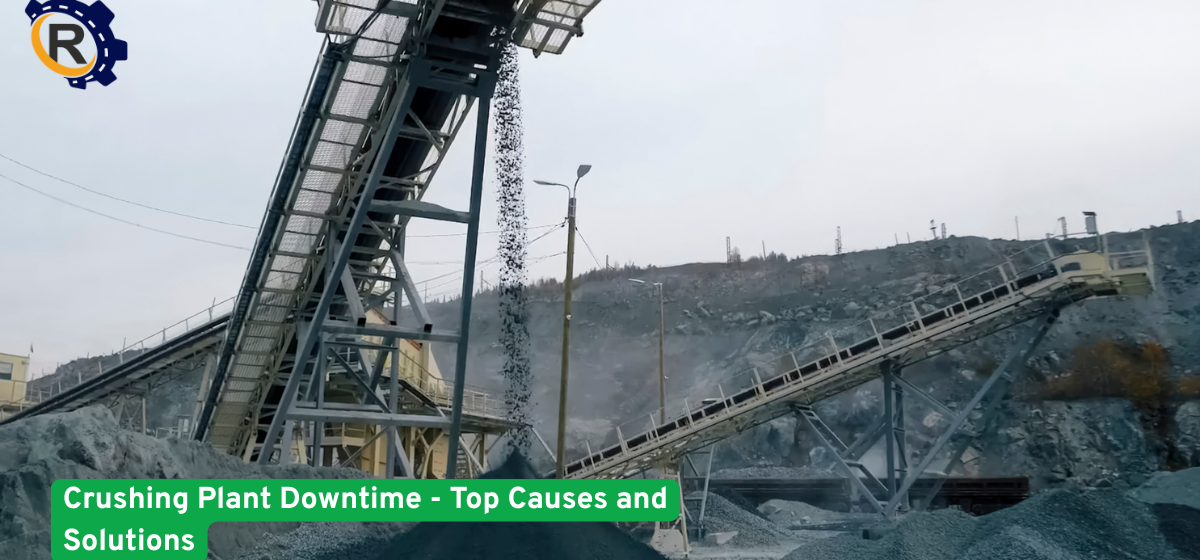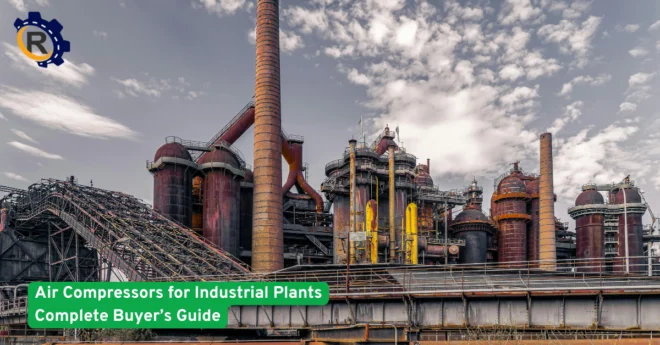This blog explores the top causes of crushing plant downtime and presents actionable solutions that plant operators and maintenance teams can implement to reduce disruptions and boost overall equipment efficiency.
Top Causes of Crushing Plant Downtime
1. Equipment Wear and Tear
Crushing equipment, particularly jaw crushers, cone crushers, and impactors, operate under extreme stress and pressure. Continuous operation leads to wear on key components such as liners, blow bars, bearings, and belts.
Solution:
Implement a preventive maintenance schedule. Regularly inspect and replace wear parts before failure occurs. Invest in high-quality, OEM-approved spare parts to extend lifespan and reduce emergency breakdowns.
2. Improper Lubrication
Insufficient or contaminated lubrication is a leading cause of premature bearing and gear failure. Improper lubrication affects multiple components, leading to overheating and reduced machine life.
Solution:
Use the correct type of lubricant as specified by the manufacturer. Monitor oil quality and levels frequently, and consider installing automatic lubrication systems for consistency.
3. Electrical Failures
Malfunctions in control panels, motors, or wiring can result in sudden shutdowns or even damage to critical systems. Harsh environmental conditions like dust, moisture, and heat contribute to these failures.
Solution:
Schedule regular inspections of electrical systems. Replace outdated wiring, install cooling systems where needed, and ensure all connections are secure. Use weatherproof enclosures and surge protectors to guard against damage.
4. Clogging and Material Blockages
Overloading or feeding unprocessed materials can lead to chute blockages, belt overloads, or crusher jams, causing unscheduled downtime.
Solution:
Implement proper material screening before feeding the crusher. Train operators to recognize early signs of blockages and use feeder systems with variable speed controls to maintain consistent flow.
5. Inadequate Operator Training
Untrained or under-trained personnel can contribute to avoidable breakdowns due to incorrect machine operation or delayed response to warning signals.
Solution:
Invest in regular training programs for plant operators and technicians. Ensure all team members understand how to operate equipment safely and efficiently.
6. Delayed Spare Parts Availability
Unplanned downtime is often prolonged due to unavailability of critical spare parts. Waiting for deliveries can cause production delays of hours or even days.
Solution:
Maintain an inventory of essential mechanical and electrical spare parts. Partner with trusted suppliers to ensure rapid access to components such as motors, gearboxes, belts, and crusher liners.
Proactive Solutions to Minimize Downtime
Predictive Maintenance Tools
Utilize sensors and IoT-based monitoring systems to detect changes in vibration, temperature, or pressure before failures occur. Predictive maintenance reduces downtime by enabling targeted interventions.
Performance Audits and Inspections
Conduct regular audits of crushing plant operations, evaluating both mechanical health and operator efficiency. These audits can highlight weaknesses in the system that are contributing to downtime.
Upgrading Control Systems
Modern PLC (programmable logic controller) and SCADA systems offer better monitoring, automation, and safety. Upgrading outdated systems reduces operator error and enhances real-time diagnostics.
Establishing a Downtime Logbook
Keep detailed records of every instance of downtime, including causes, duration, and resolution. Analyze this data regularly to identify patterns and take corrective action.
Common Spare Parts to Keep in Stock
To avoid downtime caused by delayed part replacement, stock up on these frequently needed items:
- Crusher liners and jaw plates
- Conveyor belts and rollers
- Bearings and pulleys
- Motors and gearboxes
- Electrical fuses, switches, and relays
- Hydraulic hoses and seals
Conclusion
Crushing plant downtime is not only costly but often avoidable. By understanding the most common causes—from equipment wear to electrical failures—and taking proactive measures, plant managers can significantly reduce disruptions. A well-maintained plant with trained personnel, up-to-date technology, and ready spare parts is a high-performing plant.
Whether you’re upgrading your system, sourcing spare parts, or improving operational practices, minimizing downtime should be a top priority for long-term success.
Whether you operate a mobile batch plant or a large-scale stationary facility, the right control system will empower your operators and safeguard your plant’s performance. As technology continues to evolve, modernizing your control setup is not just a smart move — it’s essential for staying competitive.




